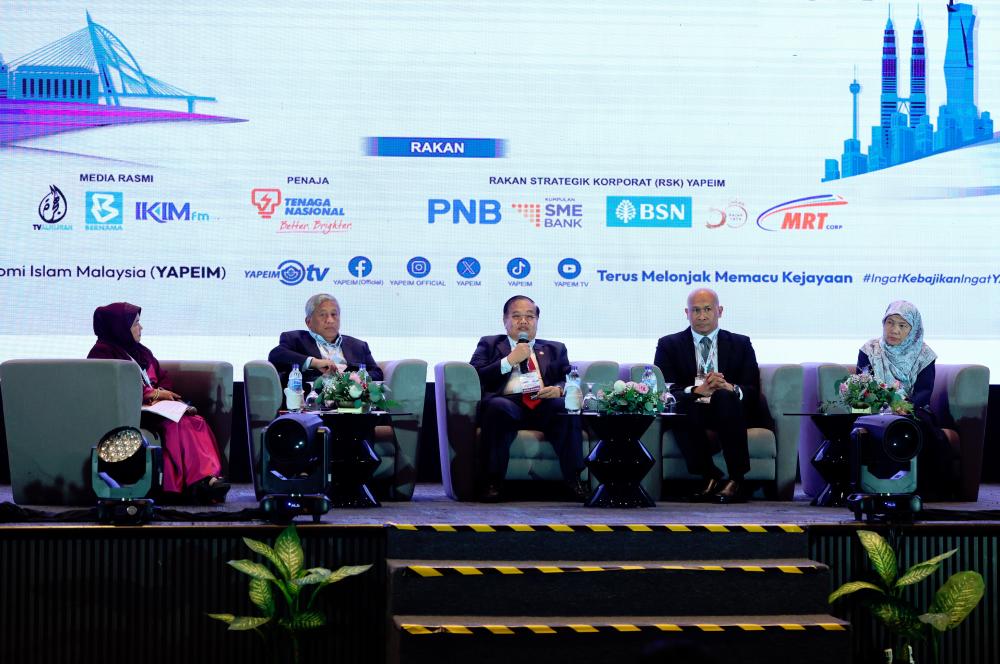PUTRAJAYA: Malaysia has the capability and potential to assist neighbouring countries develop their Islamic financial products, said Singapore’s Pergas Investment Holdings chief executive officer and director Dr Shamsiah Abdul Karim.
Speaking as the panellist at the 2024 YaPEIM Regional Forum (FSY2024), she said, for instance, in Singapore, there are still no Syariah-compliant takaful products, inviting Malaysia to seize the opportunity to help develop products for Muslims in the country.
“We should cooperate to see how we can structure Islamic finance in Singapore. There are many frameworks and systems (of Islamic finance) available in Malaysia that can be adapted in Singapore.
“I suggest that Malaysia provide assistance because the community (Muslims in Singapore) needs Syariah-compliant financing,” she said during the forum titled Pembangunan Ekonomi Islam Pasca Normal: Takrifan, Cabaran dan Tindakan (Post-Normal Islamic Economic Development: Definitions, Challenges and Actions) hosted by the Islamic Economic Development Foundation of Malaysia (YaPIEM), here today.
Fellow panellist, PT. Bank Mega Syariah (Indonesia) president commissioner Mohammad Nuh said all parties should be optimistic that the countries in the Nusantara region of Southeast Asia have significant potential to emerge as one of the largest economic centres in the world because it has a large population, a rich civilisation and a commitment to generating competitive industrial and economic environment.
“These three factors underpin why we must be optimistic that there will be extraordinary civilisation and industries in this region,” he added.
However, Bank Muamalat Malaysia Bhd chief economist Dr Mohd Afzanizam Abdul Rashid said that there is still much to be done by the Nusantara countries to enhance their economic competitiveness, especially in the Islamic finance sector.
He noted that the countries, including Malaysia, have recorded encouraging economic growth recently, however, fundamental issues such as the income gap have yet to be addressed.
“There is a need for programmes that allow effective wealth distribution from the rich to the poor. Financial instruments such as zakat, waqf, and infaq must be empowered,” he said.
The two-day forum themed Memperkasa Ekonomi MADANI Melalui Sinergi Rangkaian Serantau (Empowering MADANI Economy Through Regional Network Synergy) gathers nearly 60 local and international speakers and panellists to discuss new strategies and practical initiatives to advance Islamic economy and finance in the Southeast Asian region.
Among the topics are efforts to combat extreme poverty and inequality, Islamic finance, fintech and high-value economies, digital economy, halal industry and Islamic tourism, and the empowerment of Islamic institutions and agencies.









